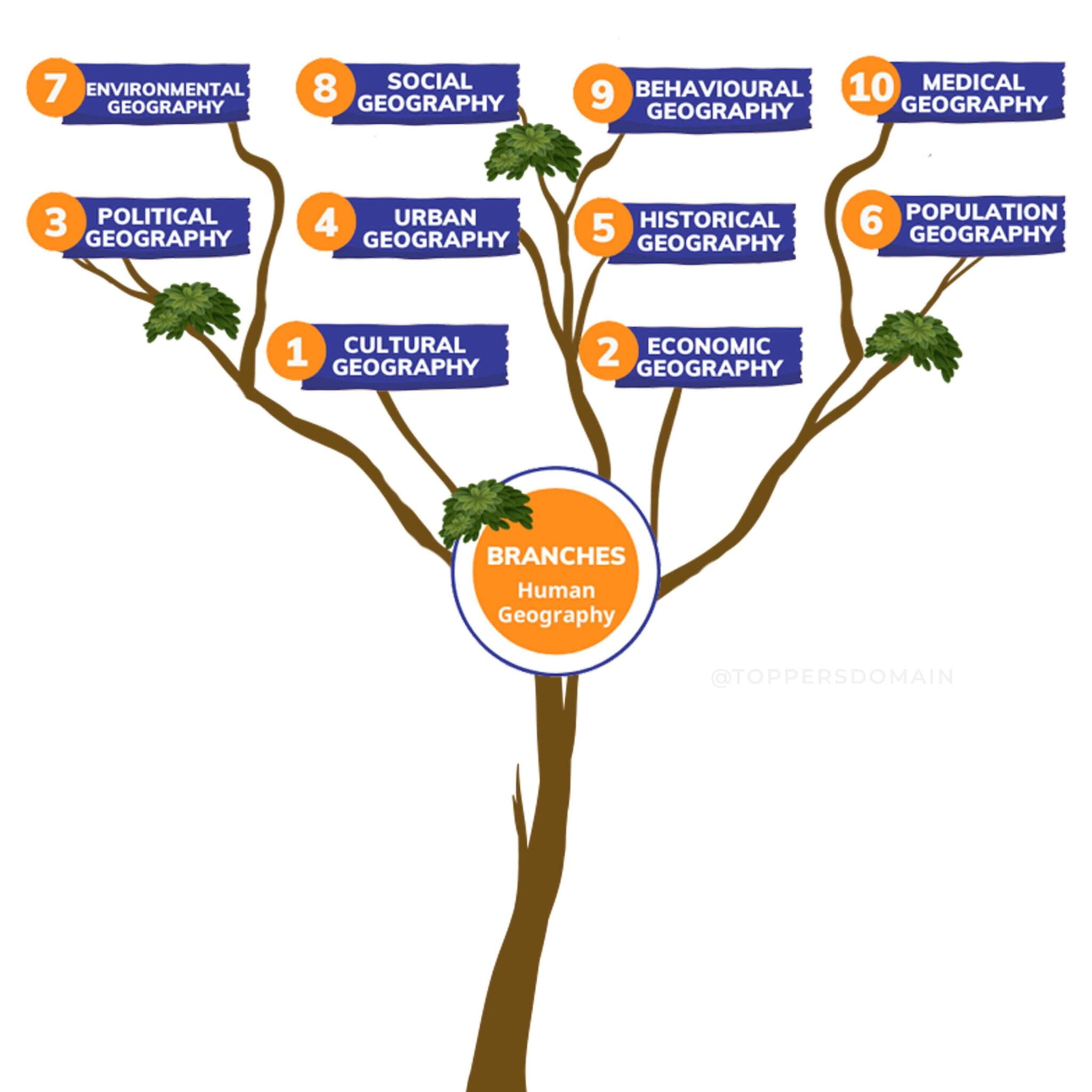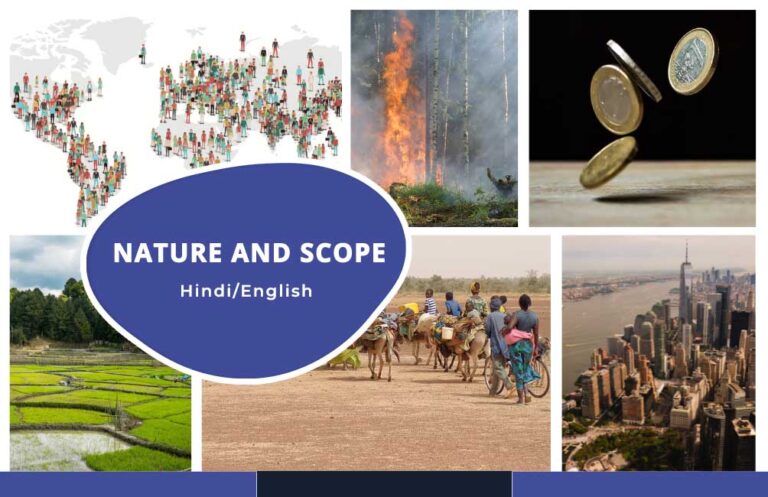Branches
Human Geography
Index
Branches of Human Geography
Human geography is the study of human activities and their impact on the environment. For some geographers, it is the study of spatial organization of human activities. Basically, it is related to the social, cultural, economic and political aspects of human life.
The field of study of human geography is very wide. It covers a wide range of topics related to human behaviour, culture and the environment. Human geography can be divided into several branches, each of which focuses on a specific aspect of human interaction with the environment. Here is a brief description of different branches of human geography.
1- Cultural Geography
Cultural geography deals with the cultural aspects of human life. It studies the spatial distribution of cultures. It Studies the cultural practices; customs, traditions and beliefs that shape human behaviour. Cultural differences are also studied under cultural geography. Under this, various elements like language, art, music, religion and social organization, through which humans try to create their cultural identity are also studied.
2- Economic Geography
Economic geography deals with the study of economic activities of human beings, their spatial distribution and their impact on the natural environment. This branch of human geography also studies various factors, such as natural resources, technology, transportation and government policies, that affect economic activity. It also studies the production, distribution and consumption of goods and services and their impact on the economy of a region or country.
3- Political Geography
Political geography is the study of the relationship between politics and geography. It deals with the study of political systems and their spatial distribution. It studies the methods by which political boundaries are drawn. This branch of human geography also studies the methods by which political power is distributed. It also studies how political power is used to shape social, economic and environmental outcomes.
4- Urban Geography
Urban geography is concerned with the study of towns or cities and their spatial distribution. This branch of human geography studies the process of urbanization (formation of cities) and the way they function. It also studies the impact of urbanization on human activities and environment. It also studies the social, economic and environmental consequences of urbanization.
5- Historical Geography
Historical geography is the study of human activities in the past and its impact on the present. Historical geography is concerned with the study of development and change in various societies and cultures over time. It studies the facts or elements due to which historical events and processes have shaped the human environment.
6- Population Geography
Population geography deals with the study of population distribution, density and patterns of migration. It studies the effects of population growth and decline, on human activities and the environment. This branch of human geography also studies the ways in which demographical changes lead to social, economic, and environmental consequences.
7- Environmental Geography
Environmental geography deals with the study of the relationship between man and the natural environment. It studies the effect of human activities on the environment. It also studies the impact of the natural environment on human activities and human behaviour. This branch of human geography also studies the social, economic and cultural impact of environmental change.
8- Social Geography
Social geography focuses on the study of social and cultural aspects of human life and their spatial patterns. It includes the study of social identity, gender and class. It also studies the social and cultural factors that give meaning to a place and landscape. Social geography also focuses on the study of the impact of globalization on the social and cultural landscape of cities and regions.
9- Behavioural Geography
Behavioural geography is the study of human behaviour and its relationship with the natural environment. This branch of geography draws insights from psychology, sociology and anthropology. How humans interact with their environment and how these interactions shape their behaviour and experiences is the subject matter of behavioural geography.
10- Medical Geography
Medical geography is the study of the spatial distribution of diseases and health facilities. It studies the patterns of health and disease. Medical geography also studies the influence of social, economic and environmental factors on health outcomes, including the availability and accessibility of health services. It incorporates and integrates perspectives drawn from regional geography, epidemiology and other related disciplines.
Conclusion:
To conclude, the field of study of human geography is diverse and dynamic which covers a wide range of topics and issues related to human activities, human behaviour and environment.
The branches of human geography mentioned above are some examples of the study of human geography. Each branch of human geography provides insight into how humans interact with their environment and how these interactions shape social, economic and environmental outcomes.
Share
Other Topics
Unit - I





